Doctors or midwives record three standard projections from the newborn’s echocardiogram (Echo) of the heart, obtaining results indicating the presence or absence of congenital heart defects (CHD). This system complements screenings that focus only on critical CHDs detected by the imperfect pulse oximeter.
The solution is being developed by leading medical and AI scientists.
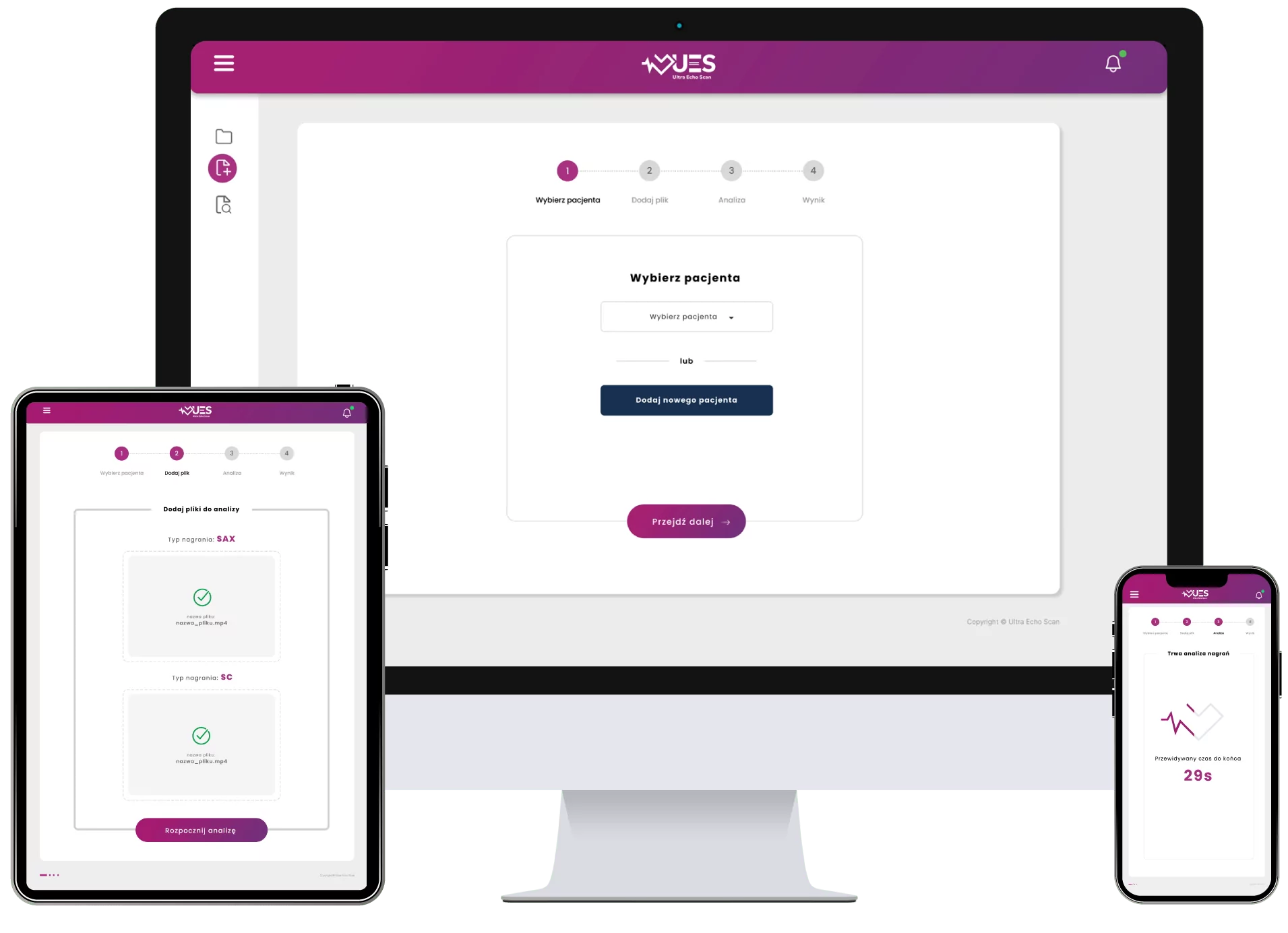
Our solution involves making a system of diagnostic image analysis algorithms available in the cloud through a web browser. UES is not dedicated to specific manufacturers and does not require installation on a computer desktop or the device itself. The system operates simply and intuitively. It requires recording of standard defined projections and uploading them in the browser window. Preliminary surveys suggest that such recordings, without their specialized analysis, can be effectively made by medical staff with basic competencies in conducting ultrasound scans of newborns. All other actions are performed automatically by the system. Therefore, this solution can provide diagnostic support, utilizing the principles of the existing procedure without involving a specialist whose availability at this stage is deficient and impossible to obtain for every examined patient.
The current postnatal procedure involves conducting a pulseoximetry test on newborns in the delivery room as part of the general assessment of the newborn’s condition using the APGAR scale. Pulseoximeters, which are non-invasively placed on the newborns’ limbs, measure blood saturation and oxygenation levels. Despite significant advancements in medical technology, this diagnostic method still has limitations in effectiveness.
The idea behind UES is to provide the capability for comprehensive diagnostics supported by echocardiographic (ECHO) examinations, utilizing the available medical staff and enhanced by the UES system. This involves a more integrated approach to newborn heart health assessment, combining the initial pulseoximetry screening with the advanced capabilities of echocardiography, analyzed through UES algorithms.
This approach seeks to improve the detection and diagnosis of congenital heart defects in newborns, leveraging current medical practices and technology to provide a more reliable and comprehensive assessment right from the start. The goal is to enhance the standard newborn cardiac assessment procedures, ensuring that potential heart defects are identified and addressed as early as possible.
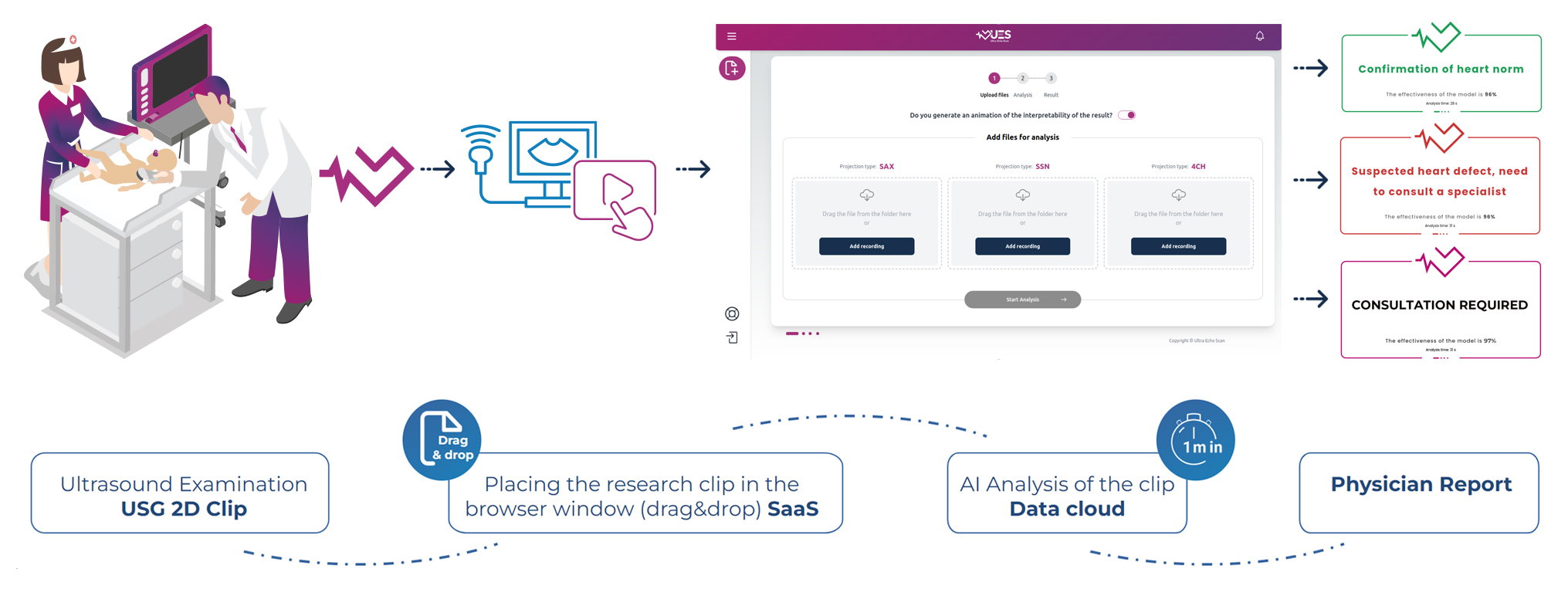
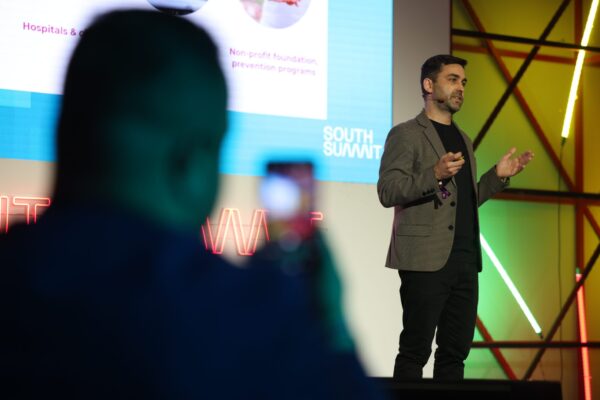
From the Top 10 Health Startups in Europe to the stage in Madrid — our team joined one of the world’s most prestigious innovation summits to connect, pitch, and share our mission.
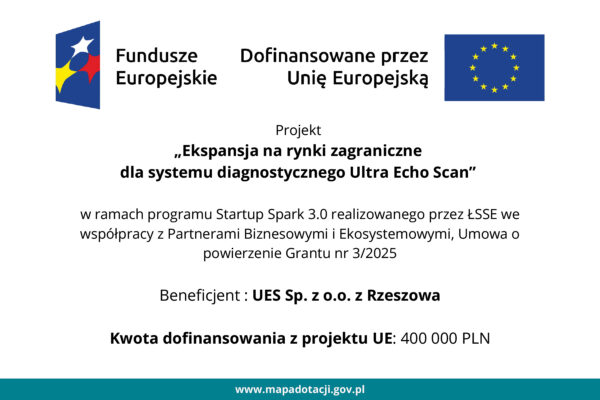
We are proud to announce that UES Sp. z o.o. has received European Union funding to support the international expansion of our…

We are thrilled to announce that Prometheus MedTech.AI has been selected as one of the Top 10 startups in the Health category at South Summit…

Prometheus MedTech.AI was proud to participate in Wolves Summit 2025, one of Central and Eastern Europe’s leading events focused on…
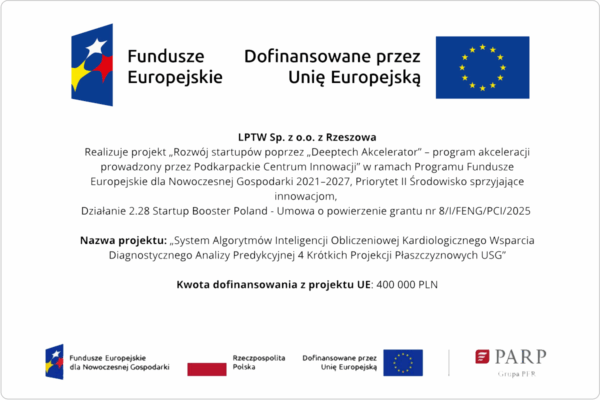
We’re pleased to announce that Prometheus MedTech.AI (LPTW Sp. z o.o.) has been awarded a grant of 400,000 PLN as part…

We’re presenting at the “Revolutionizing Healthcare: AI, Technology and Impact” conference, showcasing Prometheus Med Tech.AI – our advanced platform designed…
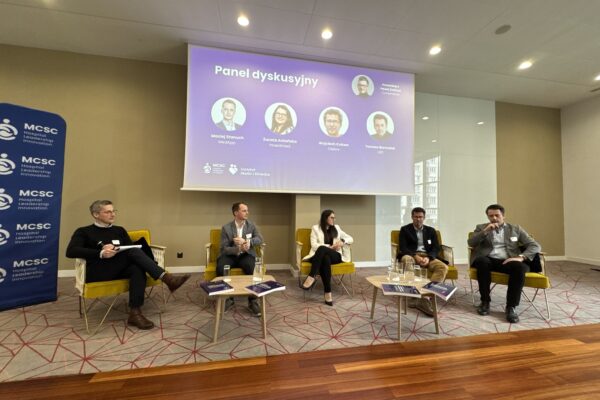
We had the pleasure of participating in an event that attracted tremendous interest from the medical community and health tech…
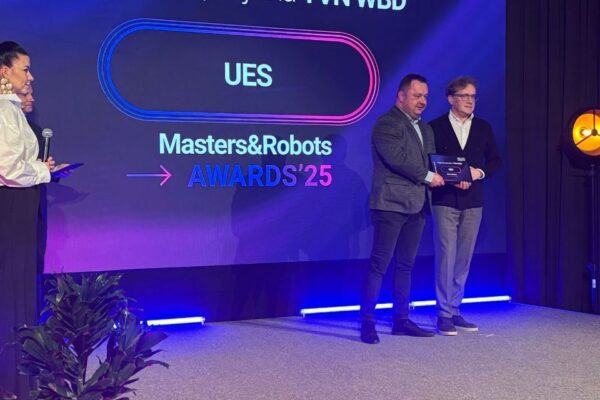
We’re excited to share that our groundbreaking technology, Ultra Echo Scan, developed as part of the Prometheus Med Tech.AI project,…
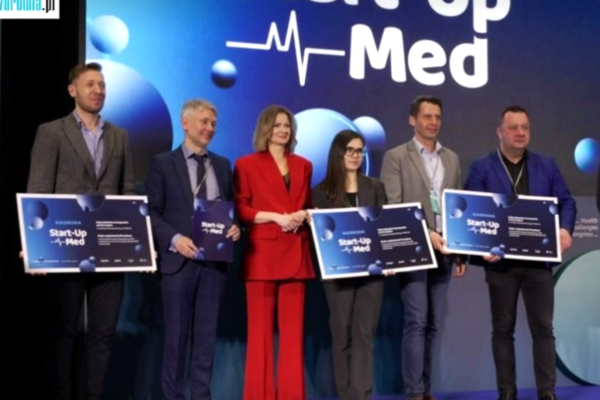
We are proud to announce that our Ultra Echo Scan (UES) technology has won the grand prize in the prestigious…

The Institute of Mother and Child hosted an extraordinary meeting on the future of technology in healthcare, attended by distinguished…
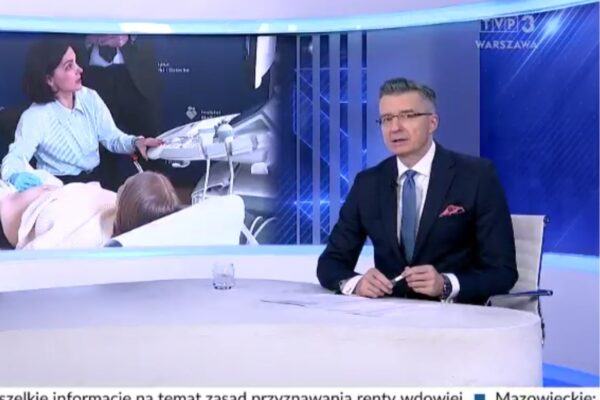
The Intelicardio project “Artificial intelligence in the diagnosis of congenital heart defects – future practical application” carried out by our…
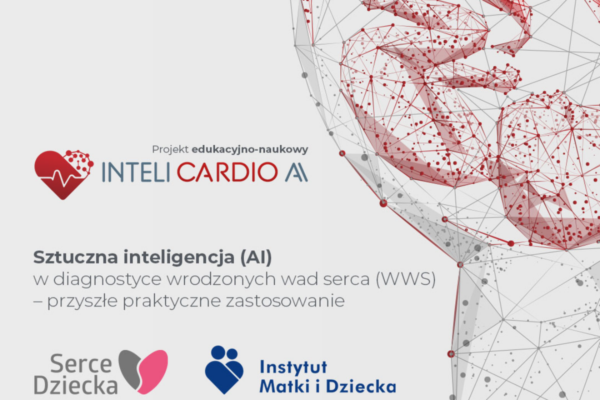
On January 17, 2025, the Institute of Mother and Child in Warsaw will once again host a training as part…